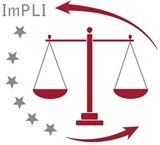
(2011–2012) – ÚTRL FF UK řešitel za Českou republiku
The project is a comparative study of interpreter-mediated questioning practices – especially by the police – in Belgium, the Czech Republic, France, Germany, Italy and Scotland. The report of the project is available as well as six educational films for improving police and legal interpreting.
Presentation
As part of its activities within UNITI, ISIT has signed an agreement with the EU’s Directorate-General for Justice to coordinate a project on the right to interpretation and translation during criminal proceedings (implementation of Directive 2010/64/EU). The project, entitled ImPLI (Improving Police and Legal Interpreting), is a comparative study of interpreter-mediated questioning practices – especially by the police – in Belgium, the Czech Republic, France, Germany, Italy, and Scotland.
The University Network of Interpreter Training Institutes (UNITI) was set up in 2009. It focuses on educational exchange and research. Current members include Charles University in Prague, Fachhochschule Köln (Cologne University of Applied Sciences), Heriot-Watt University in Edinburgh, Lessius University College in Antwerp, and the University of Bologna.
The project took place between April 2011 and September 2012.
The partners assessed the current state of police interpreting in their countries and analyzed the various strategies for questioning and the interpreting techniques used.
They organized six roundtables during which representatives from public prosecutors’ offices, police academies, and legal interpreters explained how they viewed interpreter-mediated interviews. These round tables had a twofold purpose: to instigate or expand discussions amongst professionals, and to exchange information and best practices among ImPLI partners.
Concurrent with the roundtables, six educational films (one for each participant) were made.
The conclusions were presented in Paris on 7 September 2012 at a conference attended by representatives from the legal profession and professional associations. Viviane Reding, European Commissioner for Justice, Fundamental Rights and Citizenship, opened the proceedings with a pre-recorded video message.
The conference was the subject of a film, which presented a summary of the discussions
An overview of the project is available from the DG Justice’s website.